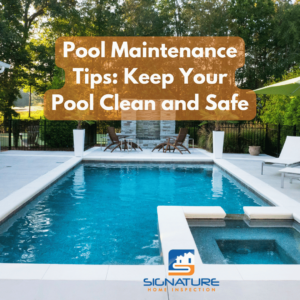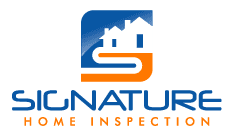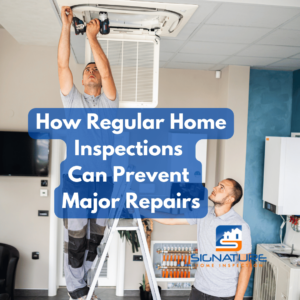A clean and safe pool is the pride of any homeowner and a magnet for fun and relaxation. Regular pool maintenance keeps the water sparkling and ensures a safe environment for everyone. Here are some essential pool maintenance tips to help you keep your pool clean and safe all season long.
1. Skim and Clean the Pool Regularly
Debris, such as leaves, insects, and dirt, can quickly accumulate in your pool. Skimming the surface daily and using a pool vacuum weekly can prevent this buildup. Regular cleaning helps maintain clear water and reduces the strain on your pool’s filtration system. Tip: Use a long-handled skimmer to reach all pool areas and empty the skimmer basket frequently.
2. Check and Balance Chemical Levels
Maintaining the proper chemical balance in your pool is crucial for safety and cleanliness. Test the water at least once a week for pH levels, chlorine, and alkalinity. The ideal pH level should be between 7.4 and 7.6, and chlorine levels should be between 1 and 3 parts per million (ppm). Proper chemical balance prevents harmful bacteria growth and keeps the water safe for swimmers. Tip: Invest in a quality water testing kit or strips for accurate readings.
3. Clean the Pool Filter
Your pool filter plays a significant role in maintaining clean and safe water. Whether you have a cartridge, sand, or diatomaceous earth filter, cleaning it regularly according to the manufacturer’s instructions is essential. A clean filter improves water circulation and helps trap debris effectively. Tip: Backwash your filter system as needed to remove built-up contaminants.
4. Shock the Pool
Shocking the pool involves adding a high dose of chlorine to the water to eliminate contaminants and bacteria. This process should be done every 1-2 weeks, especially after heavy use or a rainstorm. Shocking keeps your pool water clear and safe for swimming. Tip: Perform pool shocking at night to prevent sunlight from reducing the effectiveness of the chemicals.
5. Maintain Water Levels
Water levels can fluctuate due to evaporation, splashing, and backwashing. Ensure your pool’s water level stays at the midpoint of the skimmer or pool tile. Low water levels can damage the pump, while high levels can affect the skimmer’s efficiency. Tip: Check water levels after heavy use and refill as necessary.
6. Inspect Pool Equipment
Regularly inspect your pool equipment, including pumps, heaters, and filters, to ensure they are in good working condition. Address any repairs or maintenance issues promptly to avoid costly damage and ensure your pool operates efficiently. Tip: Conduct a professional inspection annually to keep your equipment in shape.
7. Cover the Pool
When not in use, cover your pool to prevent debris from entering and to reduce evaporation. A good pool cover can also help retain heat and reduce the need for chemicals. Tip: Use a solar cover to help warm your pool and reduce heating costs.
8. Brush and Vacuum the Pool
Brushing the pool walls and floor helps prevent algae buildup and keeps surfaces clean. Use a pool brush to scrub the sides, steps, and ladders at least once a week. Follow up with a pool vacuum to remove any loosened debris. Tip: Consider using an automatic pool cleaner for more efficient cleaning.
9. Monitor and Adjust for Seasonal Changes
Different seasons can impact your pool maintenance routine. For example, during the hot summer, you may need to test and adjust chemical levels more frequently due to increased usage and evaporation. In cooler months, you might reduce the frequency of cleaning and chemical adjustments. Tip: Adjust your maintenance schedule according to the season and usage patterns.
Conclusion
By following these pool maintenance tips, you can keep your pool clean and safe, providing a fun and healthy environment for everyone. Regular upkeep not only enhances the lifespan of your pool but also ensures that it remains a welcoming oasis. For a thorough inspection and expert advice, contact Signature Home Inspection today. Our professional team is here to help you maintain your pool and ensure your home is safe and sound.



